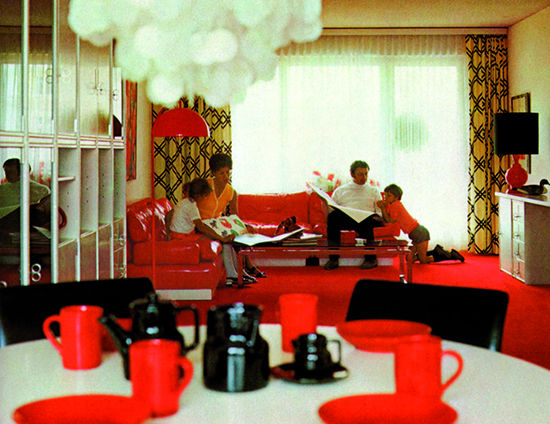
Image: Ernst Göhner AG, Switzerland, Marketing Image, ca. 1967. Courtesy of Patrick Schoeck.
November 26, 2013
Studio-X NYC
1973, the year of the first oil shock, marks a stark turning point in the conception of housing within architecture discourse. In the United States, a welfare-state approach toward low- and moderate-income housing was abandoned for a market-driven process. This change went hand-in-hand with a withdrawl of architects from the social project of housing, founded in a renewed belief in the autonomy of architecture. The separation between the social sciences and design disciplines continues to this day, as does the idea that quantity and quality, or socio-political demands and good design, are irreconciliable goals in housing.
On November 26, 2013, the Buell Center and Studio-X NYC hosted a panel discussion on the lasting impact of this turning point in architecture discourse. Points of departure were the five articles of Candide no 7, released in October of the same year: the role of housing in the thinking of O.M. Ungers; the ad-hoc methods in the housing research of Pearl Jephcott; the media's instrumentalization of Emile Aillaud's Grigny La Grande Borne; Ernst Göhner's capitalist mass housing in Switzerland; and the heated debate preceding Aldo Rossi's appointment at ETH Zurich in 1971. More details on the issue's content are available online.
The discussion involved Hilary Sample, principal of MOS and professor, Columbia GSAPP; Claire Weisz, principal of WXY architecture +urban design; Gwendolyn Wright, professor, Columbia GSAPP. It was introduced by Susanne Schindler, Co-editor of Candide, and moderated by Reinhold Martin, Director of the Buell Center.
Candide is published twice a year in print and online as an open-access journal. For further information on submissions, orders, and to access content, see: http://www.candidejournal.net.




